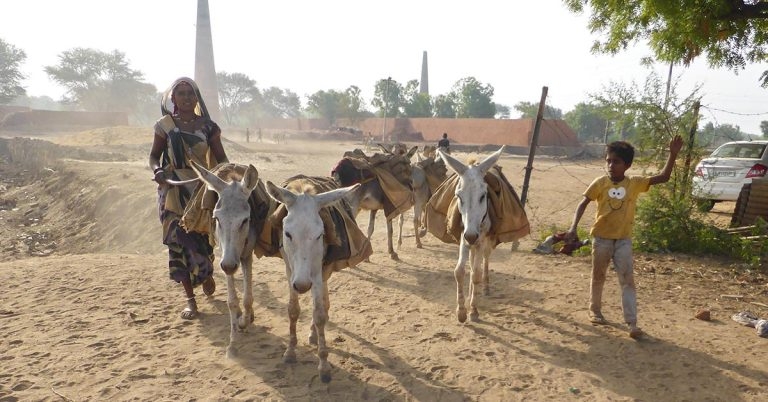20 May 2020
Research article by The Donkey Sanctuary highlighting link between welfare of working equids and well-being of their owners is accepted in peer-reviewed scientific journal.

The paper calls for a more holistic “one health” approach to working equids in brick kilns. Image © The Donkey Sanctuary
A research paper by The Donkey Sanctuary on the link between working equid welfare and the well-being of their owners has been accepted for a peer-reviewed scientific journal.
In what the world’s largest equine welfare charity describes as a “significant endorsement”, the scientific paper, “Cultural ‘blind spots’, social influence and the welfare of working donkeys in brick kilns in northern India”, will appear in Frontiers in Veterinary Science.
Written by the charity’s research staff, the paper calls for a more holistic “one welfare” approach to working equids in brick kilns – especially through cooperation with NGOs.
It highlights the lives of some of the poorest members of Indian society, and describes how the equid owners often face issues with gender or socio-economic status and opportunities that impact on their ability to care of their own animals.
Culture, status, religion and social influences are all probed in the paper.
Tamlin Watson, senior researcher global at The Donkey Sanctuary and author of the paper, said: “Working equid welfare is inextricably intertwined with human caregivers.
“People, facing exploitation and in extreme poverty, have difficult decisions regarding how scant resources – both physical and economic – are apportioned.
“This article highlights the complexity of human lives in brick kilns in northern India, how socio-economic influences drive practices affecting working equid welfare, and the need for collaboration to ameliorate welfare for both partners within the human-animal relationship.”
Frontiers in Veterinary Science’s articles are available through open access, and the paper can be read in full now.